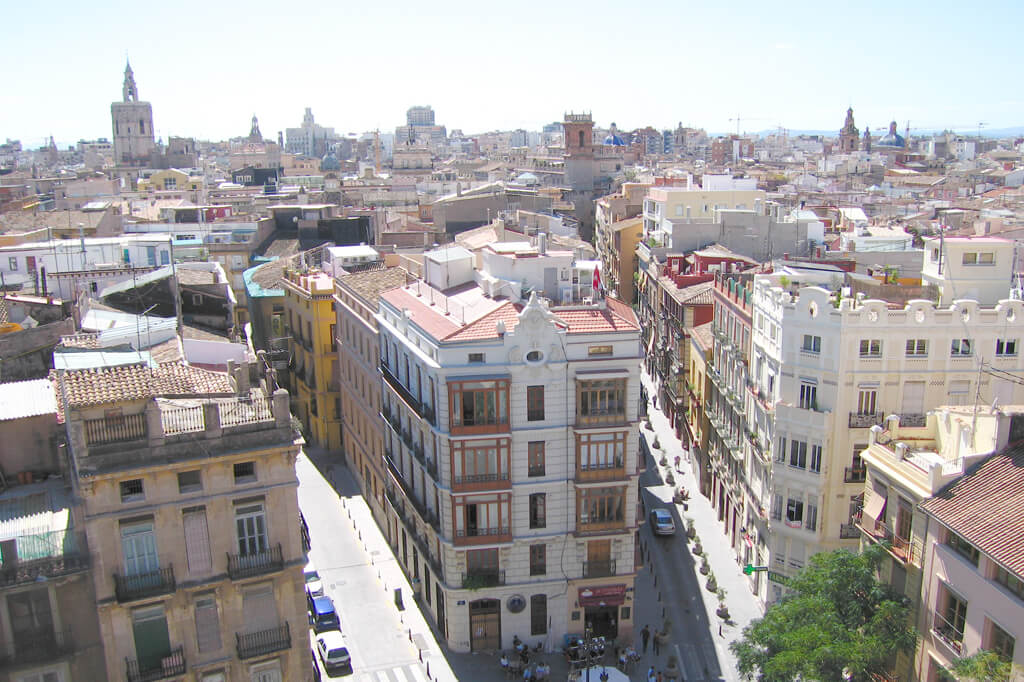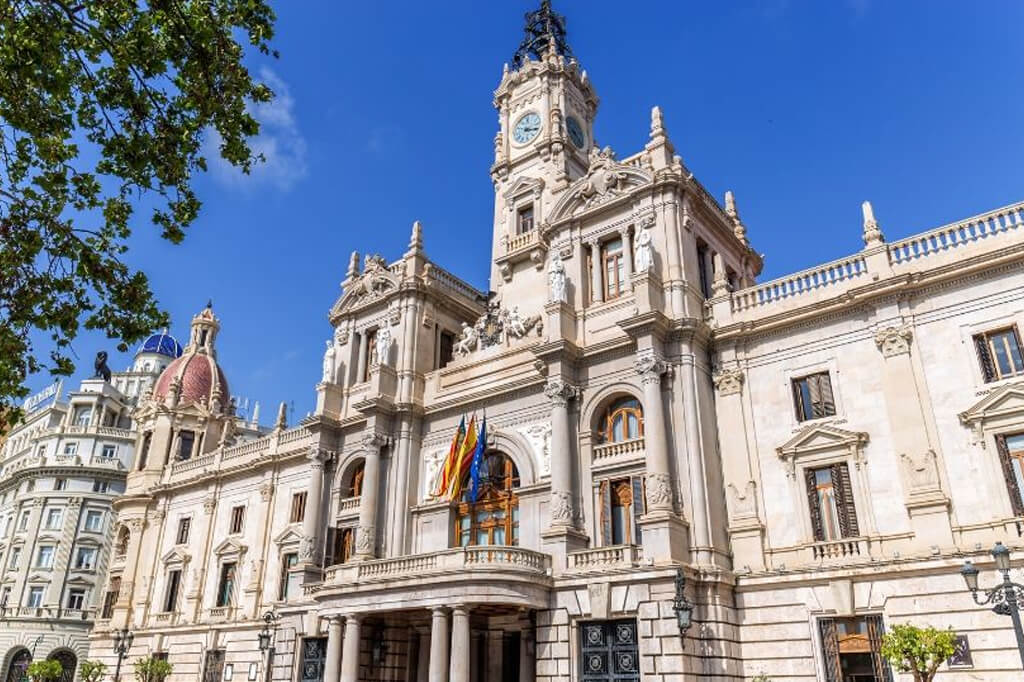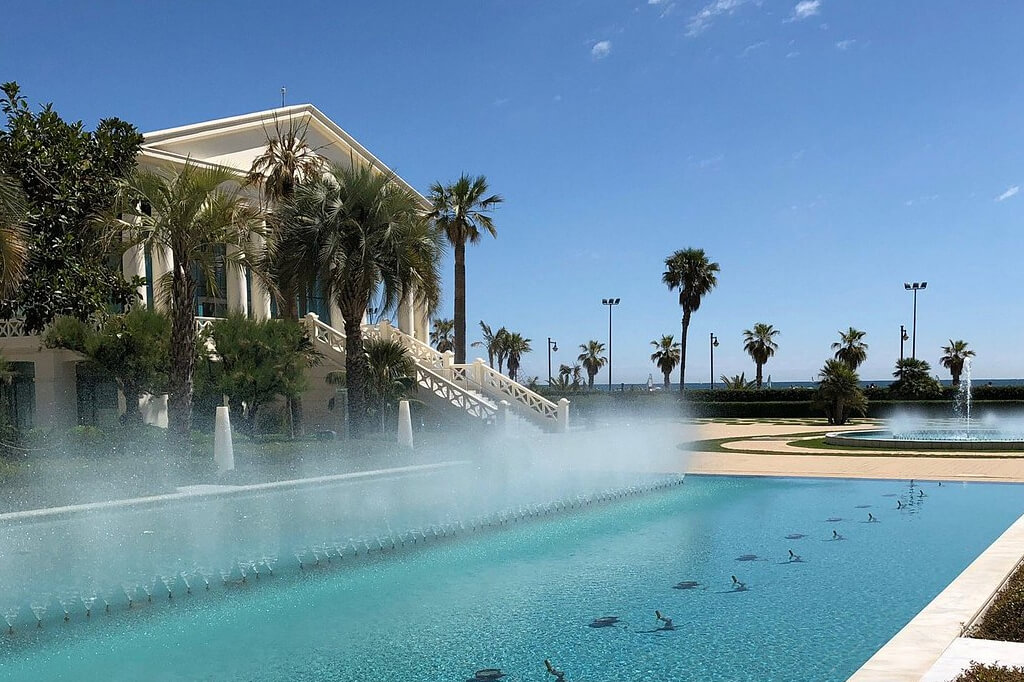Valencia: A City of Contrasts and Culture
Nestled on the east coast of Spain, Valencia is a city where the past and the future coexist in a vibrant tapestry of culture, architecture, and gastronomy. With a history that dates back to 138 BC, Valencia has evolved from a Roman colony into a bustling modern city, offering a unique blend of traditional charm and innovative spirit. This introduction to Valencia will take you on a journey through its cobbled streets, futuristic structures, and everything in between, revealing why it’s a must-visit destination on Spain’s Mediterranean coast.

Historical Roots and Architectural Marvels
Valencia’s rich history is etched into its varied architecture. The city’s Old Town, Ciutat Vella, is a labyrinth of narrow streets and squares, each corner steeped in history. The Gothic Valencia Cathedral, which claims to house the Holy Grail, stands proudly in the city center, its Miguelete Tower offering panoramic views. Nearby, the 15th-century La Lonja de la Seda, a UNESCO World Heritage site, showcases Gothic architecture and recalls Valencia’s golden age as a Mediterranean mercantile powerhouse.
Transitioning from the ancient to the contemporary, the City of Arts and Sciences is an architectural masterpiece. Designed by Santiago Calatrava, this futuristic complex houses a science museum, planetarium, opera house, and the largest aquarium in Europe, L’Oceanogràfic. Its striking appearance is a symbol of Valencia’s forward-thinking attitude and a testament to its embrace of modernity.
A Culinary Haven: From Paella to Horchata
Valencia is a paradise for food enthusiasts. It’s the birthplace of paella, Spain’s most famous dish, traditionally cooked over a wood fire and brimming with flavours of the local terroir. Beyond paella, the city’s culinary scene is diverse, ranging from tapas bars in El Carmen to upscale restaurants in Eixample. Valencia also takes pride in its horchata, a refreshing drink made from chufa (tiger nuts), best enjoyed with fartons, a local sweet bread.

Festivals and Traditions: A Celebration of Life
Valencians know how to celebrate life. The most famous of their festivals is Las Fallas, a fiery, explosive celebration held in March. Giant, artistically crafted figures (fallas) fill the streets, only to be set ablaze in a spectacle of flames and fireworks. Other notable events include La Tomatina in nearby Buñol and the religious procession of Semana Santa.
Green Spaces and Beaches: Nature in the City
Valencia is blessed with abundant green spaces. The Turia Gardens, created in the old riverbed of the Turia, offer 9 kilometers of lush gardens, sports facilities, and playgrounds, leading right to the City of Arts and Sciences. For beach lovers, the city’s coastline boasts pristine beaches like Playa de la Malvarrosa and Playa de las Arenas, perfect for sunbathing, swimming, and enjoying seafood paella at a beachfront restaurant.
Arts and Culture: A Hub of Creativity
The city’s art scene is as diverse as its history. The Fine Arts Museum houses works by Goya and Velázquez, while IVAM (Valencian Institute of Modern Art) showcases contemporary art. Street art in El Carmen brings color and life to the ancient neighborhood, reflecting the city’s creative pulse.
Economic and Educational Hub
Valencia is not just a tourist destination but also an economic and educational hub. It hosts trade fairs, conferences, and has a thriving startup scene. Universities like the University of Valencia and Polytechnic University of Valencia attract students from around the world, adding to the city’s dynamic and youthful atmosphere.

Transport and Connectivity
Getting around Valencia is a breeze thanks to its efficient public transport system, including metro, buses, and trams. The city is also bike-friendly, with extensive cycling paths and a bike-sharing program. Valencia Airport, just 8 kilometers from the city center, connects Valencia to major cities in Europe and beyond.
Accommodation: From Historic to Modern
Valencia offers a range of accommodation options. Visitors can choose from luxury hotels, budget hostels, and apartments. For a unique experience, staying in the Old Town offers a chance to wake up in a historical setting, while beachfront hotels provide a more relaxed atmosphere.
A City for Everyone
Whether you’re a history buff, a foodie, a beach lover, or a culture enthusiast, Valencia has something for everyone. Its blend of old and new, tradition and innovation, creates a unique and unforgettable experience. Valencia is not just a destination; it’s a journey through centuries, flavours, and experiences.

